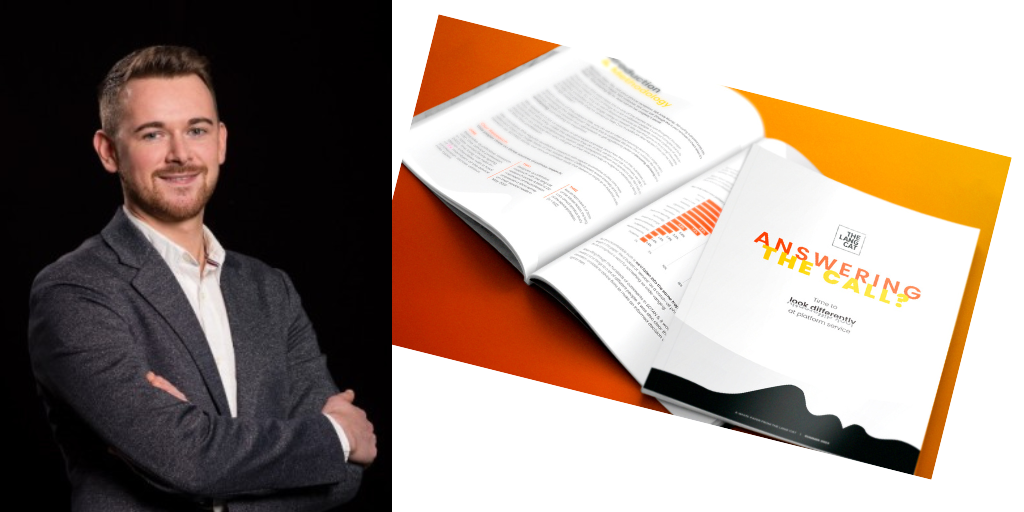In the final part of our mini-series on service and what it really means, we hear from abrdn chief commercial and strategy officer Jonny Black.
Abrdn supported our Answering the Call paper on platform service, and Jonny offers a frank acknowledgment of where the platform is at on service, and how it plans to progress the report’s findings.
“The elephant in the room”
We’ve been talking to Steve and the team at the lang cat for over six months as part of this project.
During this time, we were staring down the barrel of a very large technology upgrade that we did in February. So before I say anything else, I do want to acknowledge the elephant in the room.
We know at abrdn our service earlier this year was not where we want it to be, and it’s not where our client firms would expect it to be. We’ve seen week-on-week improvements since the Wrap upgrade went live and are on track to return to our normal service in a matter of weeks rather than months.
For us, that’s probably the biggest reason why this report is really important, and why it’s important to be talking about this now.
It’s very easy to talk about service when every service level agreement (SLA) is green and you can deal with everything in a minute and get it right first time. But actually we’re on a journey of investment and continuous improvement in our service. When I read the lang cat report as a provider, it changes how you think about where you would invest, how you would invest and the types of things that are important.
Instead of just giving you the provider take on service, and do a grand reveal, I’d rather we all had a conversation along the lines of: we’re going to invest. What do you want us to do, how should we do it and what does good look like.
Connecting the dots
The report breaks service out into four themes: people, technology, reliability and sector issues. We’d agree with all of that, but the one I’d like to focus on is people.
Everything follows from how we develop our people. How we empower them, educate, train and develop them. In that context, one thing I think we’ve got to do more of within abrdn is help connect the dots to show how everybody impacts service.
It doesn’t matter what role you’re in. Colleagues may be answering calls from clients and be explicitly aware of how they impact service, or they might be down the corridor where the proposition and design team set out what the next big upgrade will be. Whether it’s marketing, business development or the control team that looks at money laundering and financial crime and how we make sure your clients are safe when they use the platform.
The report suggests all of that amounts to service, but we don’t necessarily bring that thread together. Once that connection lands, I think that becomes really powerful because it should change behaviour and prioritisation of what it is we want to do.
It’s been said that there isn’t a single platform out there offering good service.
Perception is reality. If people don’t think there is a provider providing good service then there’s not a provider offering good service. It’s as simple as that, because service is what you experience. It’s not what somebody tells you you’ve experienced. So we as an industry need to address that.
What about Consumer Duty?
From a Consumer Duty perspective, it’s about moving towards a broader definition of service.
Clearly when it comes to measuring service there are metrics that exist already, like average speed to answer queries and average call handling times.
But it’s that broader definition which links to the issue of avoiding foreseeable harm. Service needs to be about how everything joins up, where are the gaps or the data points that have be manually typed in, and the human error that can creep in as a result.
There’s then a conversation about how we prioritise sharing data. We are drowning in data – it’s sometimes a bit daunting how much data we have.
What we need to work at is how we distil and share that data in a way that could unlock things tomorrow. If you can’t compare service data between providers, what’s the point?
Every provider could pick a hero stat on service and give you that. That’s absolutely meaningless. What we need to work together on is a common language set. We are building some stuff in the background around the metrics that are ultimately the most relevant, and making sure businesses are as efficient as possible when they use us. I imagine the exact same conversation is happening at other platforms too.
If we had that common framework, we could join up and say what we’re doing. Then advice professionals could make an informed choice. At the minute, service is just too difficult to compare.
Jonny Black is chief commercial and strategy officer at abrdn
If you missed parts one and two, catch up here:
How to get to better platform service: the lang cat view
“It’s really hard to know the truth”: The paraplanner view on service
—
Answering the Call is the first in a series of projects we’re carrying out at the lang cat this year to really understand service, and to work up a framework for how to assess and measure it better.
Watch this space for our next adviser survey, landing in your inbox shortly, which will look to progress these initial findings. If you’ve got views on how we can help you measure service more effectively, we’d love to hear them.





